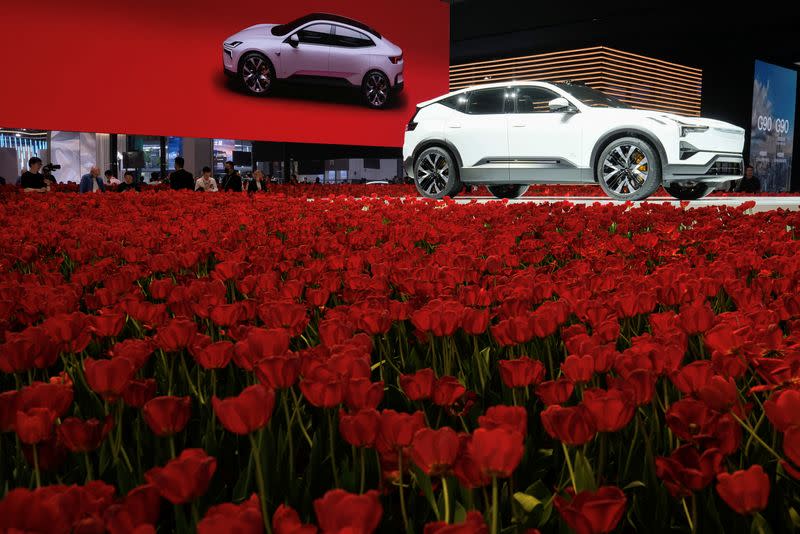Polestar partners with Geely's Meizu to build Chinese operating system

By Marie Mannes
(Reuters) - Swedish electric vehicle (EV) maker Polestar said on Monday it had formed a joint venture with Xingji Meizu to build an operating system for Polestar cars sold in China that will offer the latest smart technologies in its vehicles.
The venture represents a further push by the Geely group to adapt cars specifically for Chinese consumers. Meizu is owned by Geely chairman Li Shufu, who is also one of Polestar's largest investors and controls its largest shareholder, Volvo Cars.
Polestar, which currently makes all of its cars in China, said the new operating system would be based on Xingji Meizu's Flyme Auto system which it launched earlier this year, and would link up with in-car apps and customers' mobile phones.
The Swedish group said it would own 49% of the JV and Xingji Meizu 51%, providing $98 million and $102 million in funding respectively.
Polestar CEO Thomas Ingenlath told Reuters he expected the new software to be quickly integrated into its vehicles, while the Google Auto system available in cars sold outside China would remain unchanged.
Xingji Meizu has grown over the last decade in its attempt to become a Chinese rival to Android, but holds a marginal market share.
Traditional carmakers have come under pressure from Chinese EV makers offering lower prices and smart consumer-facing technologies.
"We definitely struggle in being competitive in that environment," Ingenlath said, adding that partnering with a company closely related to its own owner would be a positive step.
Ingenlath said this enabled U.S.-listed Polestar to use practically in-house software and cater directly to Chinese buyers' tastes
"This brings us in a completely different position, and puts us on the same level as, if not even ahead of, our Chinese EV competitors," he told Reuters.
(Reporting by Marie Mannes; Editing by Elaine Hardcastle and Jan Harvey)

 Yahoo Finance
Yahoo Finance